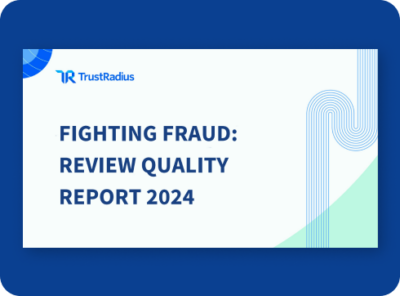
Pragmatic Marketing Podcast on the B2B Buying Disconnect
Last week, research director Megan Headley joined Pragmatic Marketing’s Rebecca Kalogeris on the Pragmatic Live podcast to discuss The B2B Buying Disconnect, our landmark study on technology buyers and vendors.
“There’s been lots of studies that show B2B buyers are conducting more independent research than ever before, and are increasingly behaving like consumers,” explained Megan. “But there hadn’t really been any research that looked at both buyers and vendors together. So how are vendors responding to these changes and are they missing out on any areas of opportunity?”
In this episode, Megan and Rebecca deep dive into how buyers perceive vendors. Most notably they discuss how trustworthy buyers consider vendor collateral and claims to be, and the impact that has on the buyer’s journey. They also discuss what vendors can do to rise above their competitors to play a more influential role in the purchasing process.
You can listen to the full Pragmatic Live podcast here.
Highlights from the Podcast
Rebecca: What else did you find [in the survey results]?
Megan: I think in terms of the biggest kind of gap or the biggest disconnect between buyers and vendors, is really around vendor collateral vendor websites and marketing collateral. So while buyers use these information sources — for example, the vendor website was the second most commonly used information source by buyers — buyers did not find them very helpful or very trustworthy.
In fact, the vendor website and vendor collateral were the two least helpful and least trustworthy information sources overall according to buyers. And if you’ve ever bought software and tried to understand certain details from the vendor’s website, this might not really surprise you. And digging into the qualitative data around it, buyers who didn’t like vendor collateral often described it as, you know, really fluffy, lacking detail, and really aimed at getting your contact information as a lead rather than giving you valuable useful information.
A couple of quotes to kind of put some color on that. One buyer said vendor websites are limited, provides little insight, and are only geared to get your information for a sales call. Another buyer said vendor collateral is often puffery and glosses over important details.
Rebecca: Well, you know, we always say it’s 100% buzzword compliant, right? So on the websites, you go on there and you think, “Well, that’s a lot of nothing.”
Megan: “What does that mean?” Exactly. And then the interesting thing here too is that on the vendor side, while they’re really focused on creating a lot of marketing collateral to share with prospects, vendors marketers themselves recognized that those content types — blogs, whitepapers, eBooks, infographics, etc. — are the least effective content types in converting prospects. So vendors themselves recognized that their own marketing collateral is not very effective.
Rebecca: I think it’s probably a big focus because it’s something we control a 100%, right? We can do that in our vacuum and move forward, and sometimes that’s what gets done most.
Megan: Exactly. That’s a great point. But one thing that we want to point out is that we don’t necessarily think this means that vendors shouldn’t produce marketing collateral, right?
Rebecca: My profession thanks you.
Megan: But we see it as an opportunity to really do a better job with your marketing collateral. So what we know when we’re looking overall, when we’re looking at averages, buyers found vendor collateral to be unhelpful and untrustworthy. But there was a small subset of buyers who liked the vendor collateral. And when you kind of dig into the qualitative response is those buyers, the ones who liked the vendor materials described a really balanced, thorough, detailed, and personalized purchase process from these vendors.
Just a couple of quotes to put some color on that. One buyer who likes vendor collateral said it really helps to understand the product. the service, the pitfalls, and the options. Another buyer said, “I like that the vendor was open and did not hide anything about their products.” So we really see this as an opportunity to produce marketing collateral that is more useful and feels more believable to buyers.
Rebecca: That makes a lot of sense too when I think of all the things I buy, it seems like almost everything on Amazon, right? And I don’t expect all five-star reviews, but I expect a certain level of review, and I go and I dig and I tend to read the negative reviews to figure out what is the bad feature. We’re used to that level of transparency in almost everything we buy in our personal lives, so I think bringing that into a B2B environment makes a lot of sense.
Megan: Exactly. And, you know what, the negative reviews or the negative perspectives, the pitfalls, it doesn’t necessarily keep you from purchasing the product but what it does is it helps you trust all of the positive reviews.




